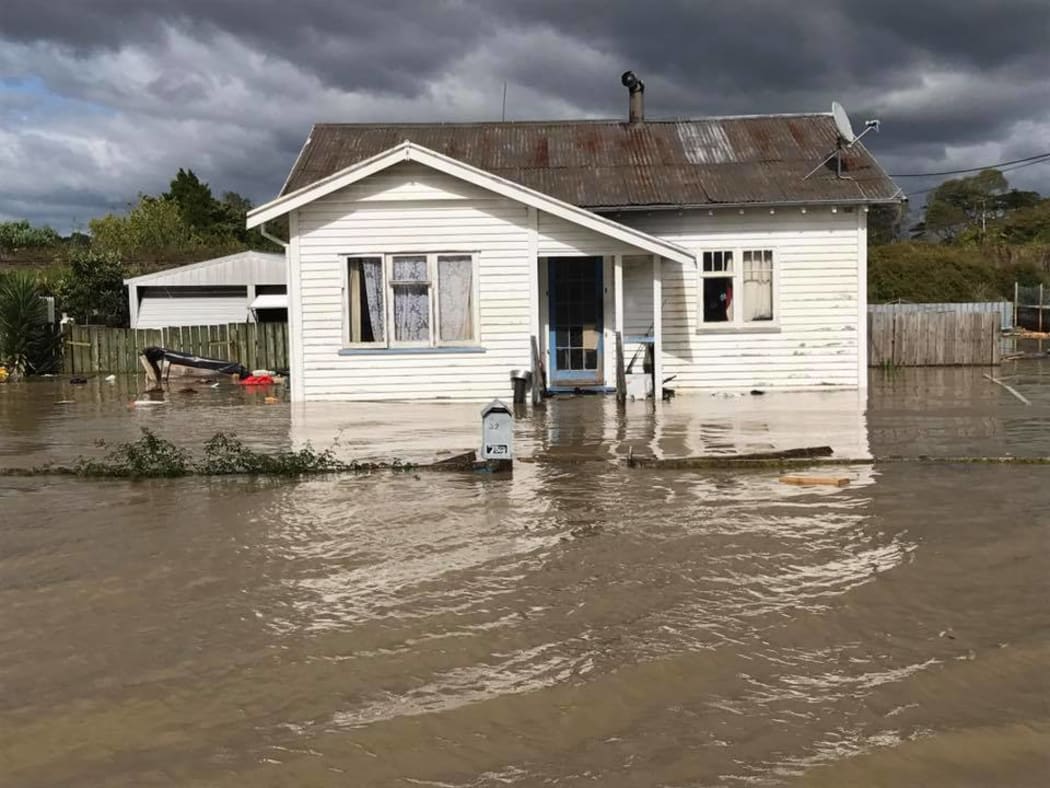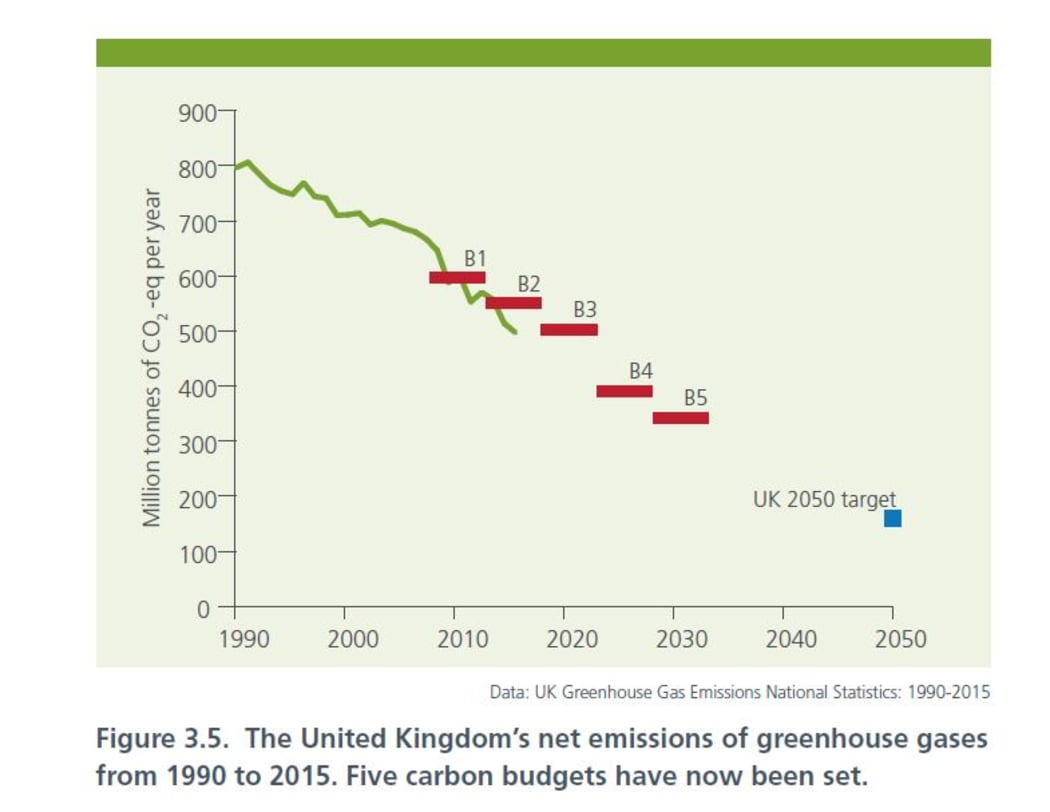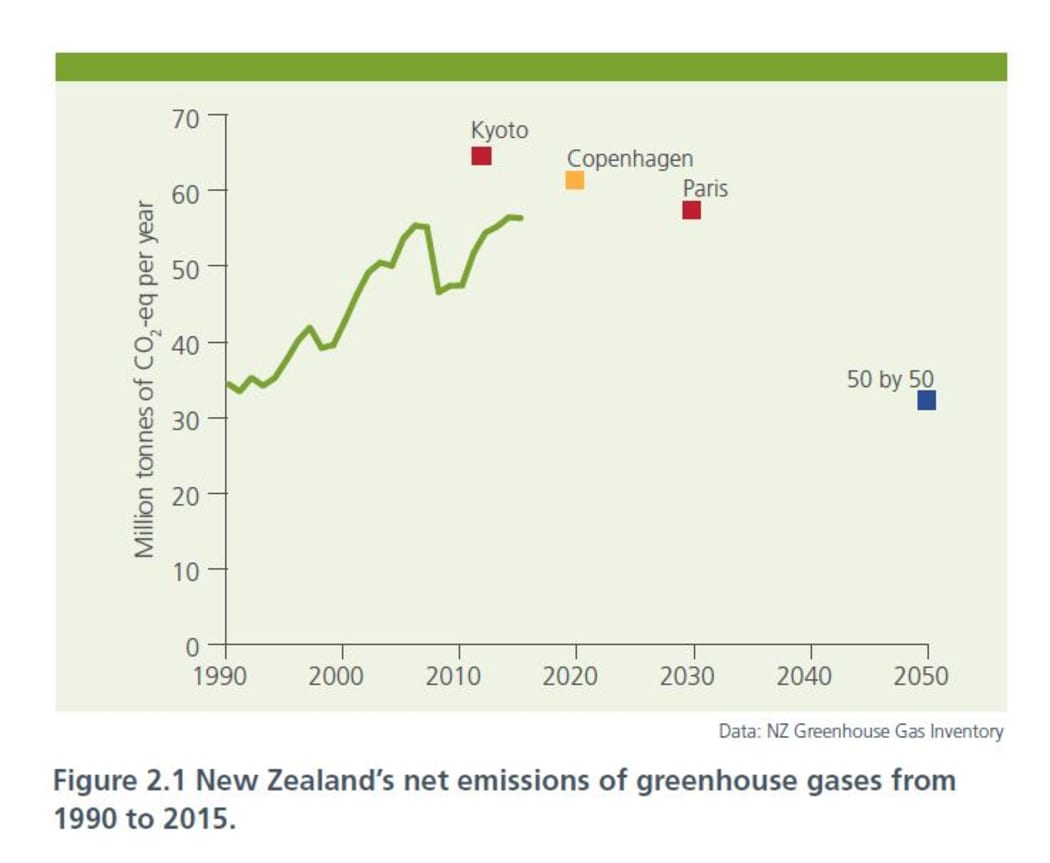In her final report before retirement, the Parliamentary Commissioner for the Environment is urging politicians to work together to make carbon emission targets legally binding.

A flooded home in Edgecumbe Photo: supplied / Tautini Hahipene
Photo: supplied / Tautini Hahipene
New Zealand needs to introduce climate change policy into law if we are to successfully reduce carbon emissions, the Parliamentary Commissioner for the Environment says.
New Zealand’s carbon emissions rose 64 percent between 1990 and 2015.
In comparison, the United Kingdom’s net emissions fell 38 percent over the same period.

Photo: Unknown

Photo: Unknown
Note: Scales on Y axes are massively different, but the graphs give an idea of the trajectory of carbon emissions in NZ versus the UK.
***
In a report released today, Parliamentary Commissioner for the Environment Dr Jan Wright has recommended New Zealand follow the UK’s lead and enact a law similar to its Climate Change Act.
The Act, voted in with near unanimous cross-party support in 2008, puts the UK’s emission targets into legislation, and sets out a process for reaching them.
In contrast, New Zealand has no legislation which legally binds the country to achieving the targets set out in the Paris Agreement.
But Wright says cross-party support is vital if legislation is introduced, so that when governments change, the law does not.
“Climate change is the ultimate intergenerational issue, and governments change,” she wrote in the report.
“Climate change transcends governments and our approach must do the same.”
In the report, Wright makes five recommendations:
1. The development of a Climate Change Transition Bill that contains a greenhouse gas emissions target and a requirement for it to be met. The 2030 Paris carbon emissions target, and the 2050 ‘50 by 50’ target are not currently legislated for in New Zealand.
2. That the Bill requires carbon budgets to be set out and met. A carbon budget is the total net amount of greenhouse gases that can be emitted over a five-year period. New Zealand has not yet set any carbon budgets, or any other kind of plan for reaching the targets.
3. That the Bill requires the Minister for Climate Change Issues to prepare policies that enable the budget to be met. Wright says the development of climate policy in New Zealand is distributed across different government agencies, and can be crowded out by other priorities.
4. That a Climate Change Commission be established, made of experts in economics, climate science, and technology, not stakeholders. New Zealand does not have an independent advisory body of experts on climate change that is analogous to the UK Committee on Climate Change.
5. That five yearly risk assessments of the impacts of climate change on New Zealand be published by the Government. This information would be publically available.


